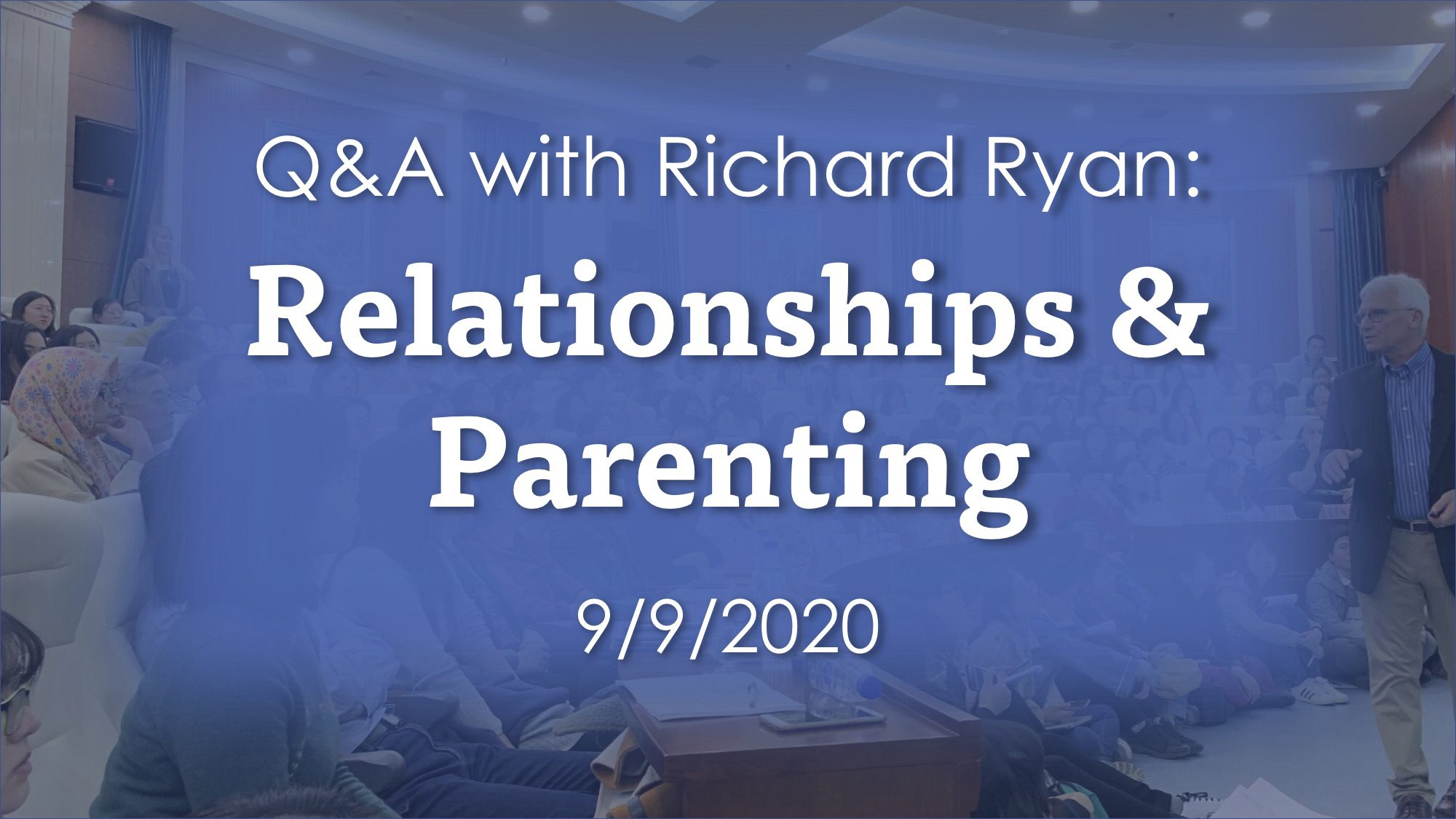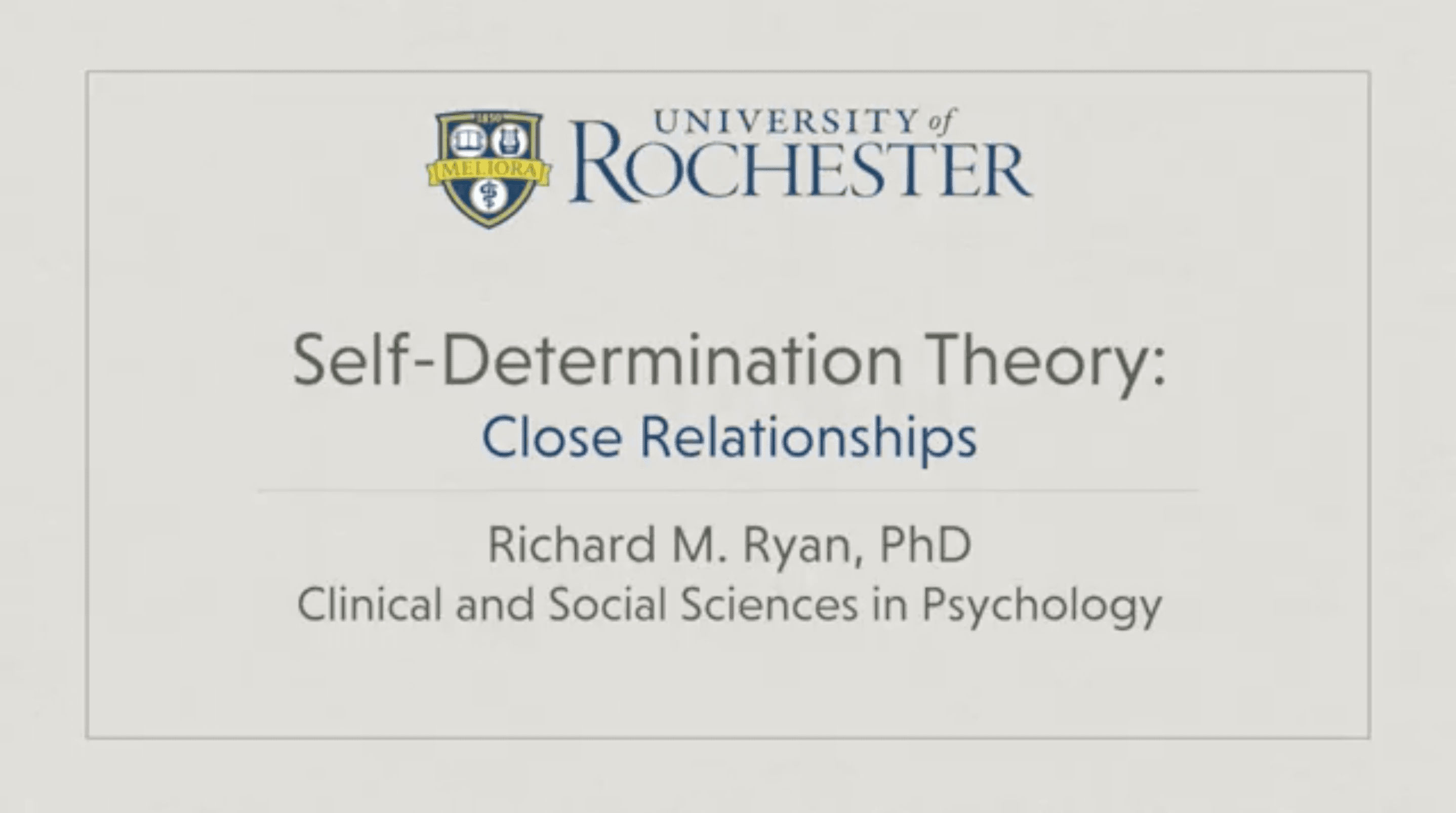Close relationships are central to human life and experience. Satisfying relationships with family members, friends, and especially with romantic partners provide social support, happiness, and well-being and act as a buffer against distress. At the same time, close relationships can be a major source of stress, conflict, and depression.
While most SDT research has focused on hierarchical relationships (e.g., mother-child, teacher-student, manager-worker), close relationships, especially between romantic partners and friends, are of special interest to SDT as they involve a relationship between non-hierarchical partners. These relationships have the greatest potential for reciprocity and mutual exchange of relatedness, autonomy, and competence need support. However, vicious cycles of need thwarting and negative reciprocity (‘an eye for an eye’) are not unusual.
In fact, maintaining a satisfying relationship is a challenge. Understanding the contribution of each partner’s need support and need thwarting to the dynamics of the relationship, paying attention to the role of each of the three basic psychological needs (autonomy, competence, and relatedness), and acknowledging that relationships unfold across time are some of the reasons why SDT research on close relationships is so fascinating.
Need satisfaction. Basic need satisfaction is closely tied to greater relationship satisfaction, commitment, and intimacy. It is important to note that from the SDT perspective, the three basic psychological needs are not independent and conflicted but interrelated and complementary. For instance, autonomy does not involve independence or detachment from a partner. Rather, it involves a sense of volition; a person may freely choose to be dependent on his or her partner. Thus, fulfillment of a personal need for autonomy does not preclude feeling connected with others. As the basic needs are interrelated and complementary, behaviors supporting one need often satisfy the other needs as well. When a person takes an interest in his or her partner’s preferences and perspectives (autonomy support), the recipient, on top of feeling more autonomy, is likely to feel more cared for (relatedness) and more valuable (competence).
Providing need support & mutuality. An implicit assumption guiding most research on providing support and caregiving is that the individual receiving care is the one who benefits while the person providing it incurs some cost. Yet SDT research suggests that because basic psychological needs are fundamental for psychological wellness and relationship quality, providing need support to a close other is a source, in its own right, of need fulfilment to the provider. Moreover, close relationships are characterized by mutuality: providing need support to a partner is likely to be reciprocated so that the partner becomes more need supporting. These cycles of need support are a key ingredient of a satisfying and lasting relationship.
Conflicting needs & conditional regard. In the course of close relationships, partners are often required to adjust to one another. They negotiate the division of roles and responsibilities, redefine their ties with each partner’s family and peers, and engage in conflictual interactions. Throughout these processes, partners continually try to influence each other to get things done “their way.” A common strategy is to offer acceptance and affection contingently – offering more acceptance and warmth when the partner fulfills a particular expectation or withholding affection in cases of noncompliance. This strategy is known as conditional regard. SDT scholars suggest this power strategy undermines relationship quality because it creates a conflict between the basic psychological needs for autonomy and relatedness. Conditional regard, when applied, requires complying with the partner’s expectations (sacrificing autonomy) to gain more acceptance or avoid losing it (relatedness). In SDT, autonomy and relatedness are equally important and essential for a relationship to flourish. Provision of one (i.e., relatedness) may not compensate for the denial of the other (i.e., autonomy). As an analogy, conditional regard is like watering a plant more frequently to compensate for a lack of sunlight—an excess of one element cannot make up for the absence of the other.
Relationships with pets. Pet owners tend to ascribe human characteristics to their pets, including emotions (e.g., ‘my dog loves me’) and cognitions (e.g., ‘my cat understands me’). Seeing pets as human-like may foster the perception of pets as close others, thus facilitating pet-human interactions that mirror human–human ones. Pet owners often view their pets as family members, including pets in family portraits, allowing them to sleep in the owner’s bed, and buying them presents. SDT research shows the three basic psychological needs are important to human-pet relations. If pets are perceived as close others, they may satisfy some of their owners’ psychological needs, just like a person would. They provide comfort after social rejection, reduce psychological stress, and foster psychological well-being. Moreover, providing need support to a pet may have beneficial consequences similar to those of providing support to a close partner.










